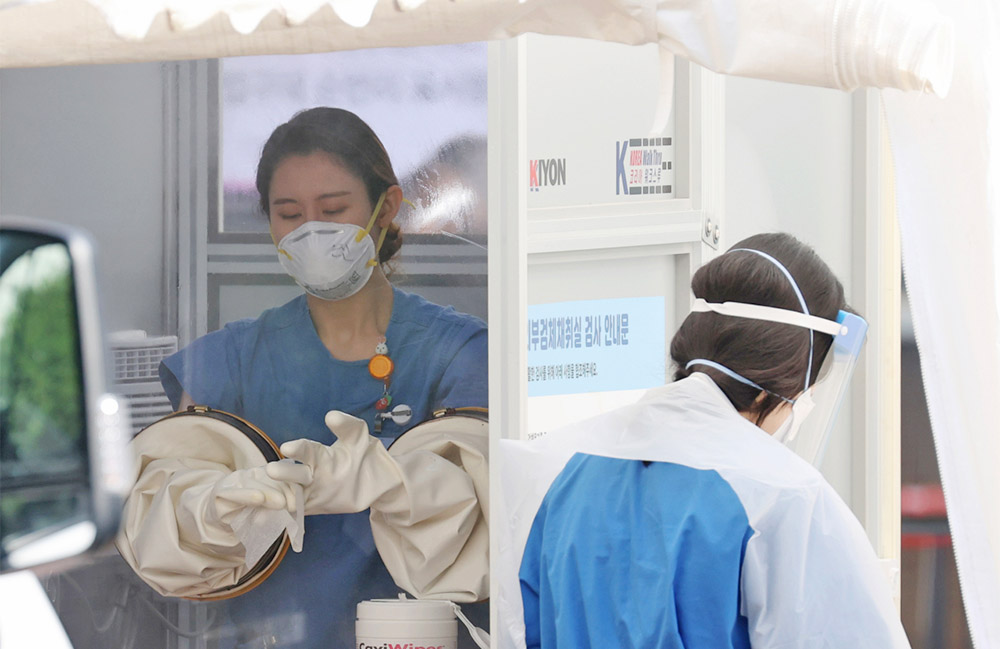South Korea lifts self-quarantine for overseas visitors from March 21
From March 21, COVID-19 vaccinations will be completed at home and abroad, and overseas entrants who have registered their vaccination history will be exempted from the obligation to self-quarantine.
The Central Disaster and Safety Countermeasure Headquarters (CDC) said at a regular briefing on March 11th, “From March 21, only those who have completed the COVID-19 vaccination at home and abroad and have registered their vaccination history will be exempted from 7 days of self-quarantine.”

This is the first easing measure in about three months since the government applied quarantine measures to all overseas entrants to prevent the inflow of Omicron Variant into Korea on December 3 last year.
Earlier, the government has been lifting quarantine measures for those who have been vaccinated since March 1, such as removing the obligation to self-quarantine of confirmed patients who have been vaccinated, and the exemption from quarantine for overseas entrants is also interpreted as an extension.
Compared to the recent significant increase in the number of new confirmed cases in Korea, the number of confirmed cases from overseas has not been large, and the fact that the overall number of foreign outbreaks has decreased compared to that of Korea also contributed to the background.
Accordingly, those who have completed vaccination in Korea or have registered their vaccination history overseas from March 21 do not have to self-isolate when entering the country.
Until now, all overseas entrants, regardless of whether they were vaccinated or not, had to self-isolate for seven days.
Exemption measures are not retroactively applied to entrants before March 21, so they must be quarantined for a week as they are.

The “completed vaccination” recognized in this measure are those who have been vaccinated within 14 to 180 days after the second inoculation (in the case of Janssen first inoculation) and those who have been vaccinated for the third time.
If 180 days have passed since the second inoculation, the third inoculation must be received to be recognized as a completed inoculation.
However, if it is confirmed after the second inoculation, there is no need to receive the third inoculation.
A confirmed patient who has been released from quarantine after self-isolation for a week is recognized as a person who has completed the inoculation even if he does not receive a third inoculation.
If you are confirmed to be unvaccinated, you must receive a second inoculation after complete recovery.
The quarantine authorities explained that the current quarantine measures will be applied to unvaccinated entrants regardless of reasons because only those who have been vaccinated and have a low risk of infection are exempted from quarantine.
Accordingly, children under the age of 12 who have not been vaccinated and those who have not been vaccinated due to medical reasons should also be quarantined for a week when entering the country.

Authorities judged that infants and toddlers under the age of 6 are exceptionally at the age of requiring parental protection, and said they would apply for quarantine exemption only if all guardians who entered the country together were vaccinated.
The vaccination history is checked through the Quarantine Information Pre-Input System (Q-CODE) upon arrival.
If inoculated in Korea, the inoculation history is automatically registered, and if inoculation is completed overseas, you can register by submitting a document recognizing the overseas inoculation history to the public health center.
From the 1st of next month, even if the inoculation is completed overseas and the inoculation history is not registered, you can be exempted from quarantine by entering the inoculation history directly into the pre-input system and attaching a certificate.
However, even if the vaccination is completed, if you enter Korea from a country other than quarantine exemption, you must self-isolate for seven days as it is.
Currently, four countries, Pakistan, Uzbekistan, Ukraine, and Myanmar are designated as countries excluding quarantine exemption.
Authorities believe the measure will have little impact on the domestic epidemic.
Park Young-joon, head of the epidemiological investigation team at the Central Disease Control Headquarters, said, “There are countries with more (confirmed cases) than Korea, but I don’t think this measure will have a significant impact on domestic trends.”
Following the exemption from quarantine obligations, overseas arrivals will also be able to use public transportation from April.
Until now, overseas entrants were prohibited from using public transportation, so they had to use their own cars or use quarantine transportation networks such as quarantine taxis and KTX-only compartments.
Authorities explained that the burden on local governments will increase depending on the domestic quarantine situation, suspending the operation of the quarantine transportation network from April and allowing all overseas entrants to use public transportation.
In addition, all overseas arrivals had to undergo PCR (genetic amplification) tests three times before entering the country, once on the first day of entry, and once on the sixth to seventh days of entry, but from the previous day, rapid antigen tests can be performed instead of PCR tests.
However, those who are subject to facility isolation other than self-quarantine, such as short-term foreigners, must undergo PCR tests on the 6th to 7th days after entering the country, taking into account the admission and discharge procedures.
The Central Disaster and Safety Countermeasure Headquarters said, “We will gradually ease the expansion of air routes and visa issuance in consideration of the quarantine situation, and closely monitor the occurrence of new overseas mutations.”














